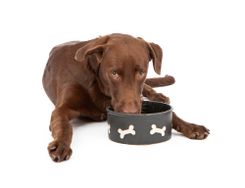What if Your Dog Accidentally Eats Chocolate? Top Pet Clinic Shares

As a pet owner, you already know not to feed your dog chocolate. Chocolate contains caffeine and theobromine, which can over-stimulate your dog’s nervous system, causing medical problems and even death. Naturally, you’re not going to give your dog a bite of your chocolate bar, but what happens when somehow, your pooch manages to find some of the sweet stuff anyway? Today, the expert veterinarians at Kapolei, Hawaii’s top pet clinic, Kapolei Pet Hospital, will explain what to do.
If you spy the chocolate chip cookie bag open or some wrappers nearby, first, attempt to determine how much and what kind of chocolate your dog consumed. Cocoa powder, unsweetened baker’s chocolate, and semisweet chocolate are among the most toxic chocolates for them, followed by dark chocolate.
 Milk chocolate and white chocolate tend to be less toxic to dogs. While a couple of squares of milk chocolate are unlikely to impact an average sized dog negatively, a cocoa-laden batch of brownies could cause issues. Whether you observe any signs of toxicity or not, contact your local pet clinic.
Milk chocolate and white chocolate tend to be less toxic to dogs. While a couple of squares of milk chocolate are unlikely to impact an average sized dog negatively, a cocoa-laden batch of brownies could cause issues. Whether you observe any signs of toxicity or not, contact your local pet clinic.
Tell your veterinarian how much chocolate your dog consumed and any other relevant factors. Your vet may advise for you to come into the pet clinic immediately or that you can go ahead and wait to see if you observe any signs of chocolate poisoning. Symptoms of vomiting, diarrhea, and increased urination signal potential poisoning. More common symptoms include tremors, a heightened heart rate, and seizures.
Older and smaller dogs tend to be more susceptible to death or serious side effects from chocolate consumption and should be rushed to the veterinarian right away. If you reach the clinic as soon as possible, the vet could save your dog.
Don’t risk your pet’s life; always take every precaution to keep chocolate and other toxic substances away from your pal. For the support you need to keep your furry friend safe and healthy, contact the experts at Kapolei Pet Hospital. Call today at (808) 462-8040, or visit the website for more information about pet health services.
About the Business
Have a question? Ask the experts!
Send your question

